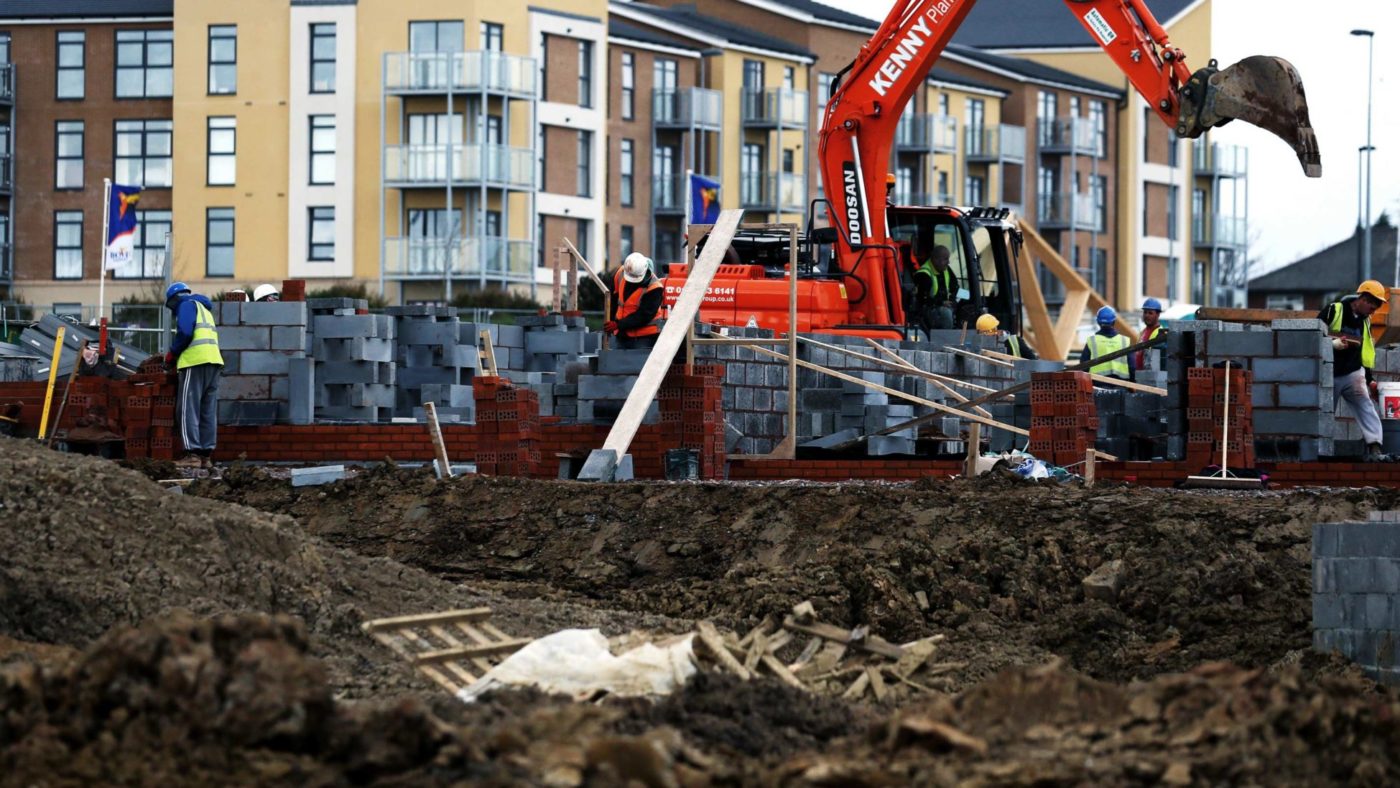Private property rights have been central to the success of the global economy. Enabling individuals and firms to enjoy the benefits of their hard work has incentivised innovation and increased productivity, delivering real income growth and increased well-being for billions.
Since the late 19th century average life expectancy has almost doubled and the number of those living in absolute poverty has fallen dramatically. But today, after years of real wage stagnation in the UK, this argument is ringing hollow for many.
Faith in private property as an engine of shared prosperity is not being repaid. One reason for this is that certain parts of the economy are increasingly driven by rent extraction instead of competitive, productive activity. And one of the clearest examples of this can be observed in the land market, which is fundamental to housebuilding, and is at the root of why this country has such a poor record on new housing supply.
New analysis by the Centre for Progressive Policy (CPP) indicates that land awarded planning permission is worth more than 275 times agricultural value across England, and in 2016/17 generated some £18bn in increased land values. The state collected about £5bn through section 106 agreements, the community infrastructure levy and public land sales leaving private landowners and their intermediaries with pre-tax profits of around £13bn.
The CLG House of Commons Select Committee recently recommended that there is scope for local government to claim a greater proportion of land value increases to help fund infrastructure and affordable housing. This raises the question of who should be entitled to these windfall profits?
In his formulation of private property rights in the second treatise on government, John Locke argued that “Every man has a property in his own person… The Labour of his body, and the work of his hands, we may say, are properly his. Whatsoever then, he removes out of the state that nature hath provided… he hath mixed his Labour with, and joyned to it something that is his own, and thereby makes it his Property.”
Locke’s argument was one that favoured a meritocratic system in which whoever created wealth should be entitled to it, and that it was the role of the state to ensure those who generate value are rewarded. But this does not happen in the land market. The reason why land values jump is because of the demand from people to live in places that are connected to jobs, close to schools and hospitals. If a parcel of land was awarded planning permission where no one wanted to live, then there would be almost no discernible uplift.
What creates the demand that drives up the price of land is the product of entrepreneurs, workers, teachers and healthcare professionals that have made the place attractive to live in. So when a local authority has awarded planning permission and the value of land has increased from £22,500 per hectare to £6.2m per hectare, this has little to do with the hard work of the land owner.
Following Locke, given that it is members of the community who have generated the value, it is they who should receive the £13bn profit, not the landowner. Moreover, this lost value matters when it comes to attempting to raise the rate of housebuilding. Opening up vacant land for new homes requires infrastructure which is expensive.
European countries such as the Netherlands have a much higher rate of infrastructure investment and housebuilding as they are able to utilise around 90% of the uplift in land values as a source of funding. This compares to only 27% in England.
If the government wishes to capture a greater share of the uplift in land values then it could reform the 1961 Land Compensation Act by removing prospective planning permission from the compensation arrangements. This would enable public authorities to buy land at prices closer to the underlying use value and thereby capture a greater share of the uplift to fund infrastructure and affordable housing.
There is resistance to such a change from some who suggest that to interfere with the windfalls accruing to landowners would somehow undermine the fundamental principle of private property. But these arguments are wrong-headed as it is the role of government to protect the property of those who have created the value, not to support a rentier system and divert this value elsewhere.
The ongoing stagnation of real wages, combined with a dysfunctional housing market in which a generation of young people are struggling to get their foot on the housing ladder, is driving increasing dissatisfaction with the current political system.
This is no surprise given that for decades politicians have been too timid in challenging the rise of rentierism. But this rentier system stands in the way of a more inclusive form of economic growth, which if not dismantled, will lend increasing support to a more extreme form of politics.


